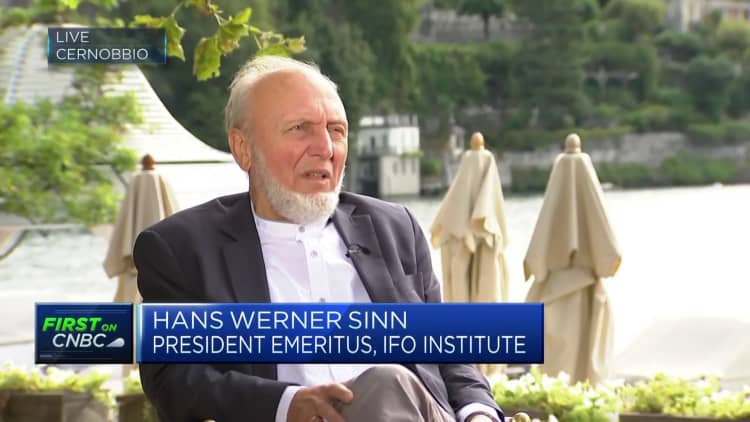Kristalina Georgieva, Managing Director of the International Monetary Fund (IMF), speaks to the media following talks at the Chancellery on November 29, 2022 in Berlin, Germany.
Carsten Koall | Getty Images News | Getty Images
Structural reforms in Germany are needed given the current global economic headwinds, International Monetary Fund Managing Director Kristalina Georgieva told CNBC’s Joumanna Bercetche.
“If you look at the policy decisions Germany is taking, they are around stimulating structural change. And of course, like any other country, structural reforms are a must in this more uncertain world with low gross growth prospects,” Georgieva said Wednesday.
The comments come amid discussions about whether Europe’s biggest economy is once again the “sick man of Europe,” with Germany anticipated to be the only major economy to contract in 2023.
The auto industry should be a particular focus for reform in Germany if the country wants to increase productivity, according to Georgieva.
“For Germany, this is very visible in the need to restructure the automobile sector for this economy of tomorrow,” she said.
The remarks echo those made by Hans-Werner Sinn, president emeritus at the Ifo Institute, at the Ambrosetti Forum in Italy in September. He said Germany regaining the “sick man” title “has to do with the automobile industry, which is the heart of the German industry and many things hinge on that.”
Autos and auto parts were Germany’s biggest export last year, accounting for 15.6% of the value of goods sold abroad, federal statistics office data shows. However, the sector is having a tough time, with both car production and exports weakening as consumers rein in spending amid soaring interest rates on borrowing, high inflation, and recession fears.

The IMF predicts a “mild recession” for the German economy this year, according to Georgieva, but is “fairly confident” it will come out of it as the energy price shock and inflation wane.
“Those are both one-off[s], they’re going to go away,” she said.
Electricity and gas prices hit record highs across Europe in 2022 after Russia’s invasion of Ukraine, but have since come down dramatically. The energy crisis is now “more or less solved,” according to Bundesbank President Joachim Nagel, who spoke to CNBC on the sidelines of the IMF Spring Meetings in April.
Preliminary figures for Germany showed that price rises slowed more than expected in September, with inflation — harmonized so it can be compared to other EU countries — rising 4.3% from a year before. The number was the lowest monthly figure since Russia’s full-scale invasion of Ukraine.
‘Remarkable’ global resilience
The IMF chief also commented on the global picture, saying the resilience of the world economy had been “remarkable.”
“We have avoided a recession that we so much feared may be coming our way this year,” Georgieva said, with labor markets fairly tight and consumer demand remaining strong in most countries. But this recovery is “slow and uneven,” she added.
The U.S. is the only large economy that has “fully recovered” from the post-pandemic economic shock, Georgieva said, while the euro zone remains 2% below its pre-Covid trend. Emerging markets and low-income countries are lagging further behind, down 4%-5% and 6% respectively, according to the IMF.
The fund describes its global growth forecast as anemic, with an average growth level of 3% over the next five years. Pre-pandemic, growth was around 3.8% over the previous decade.
Credit: Source link













